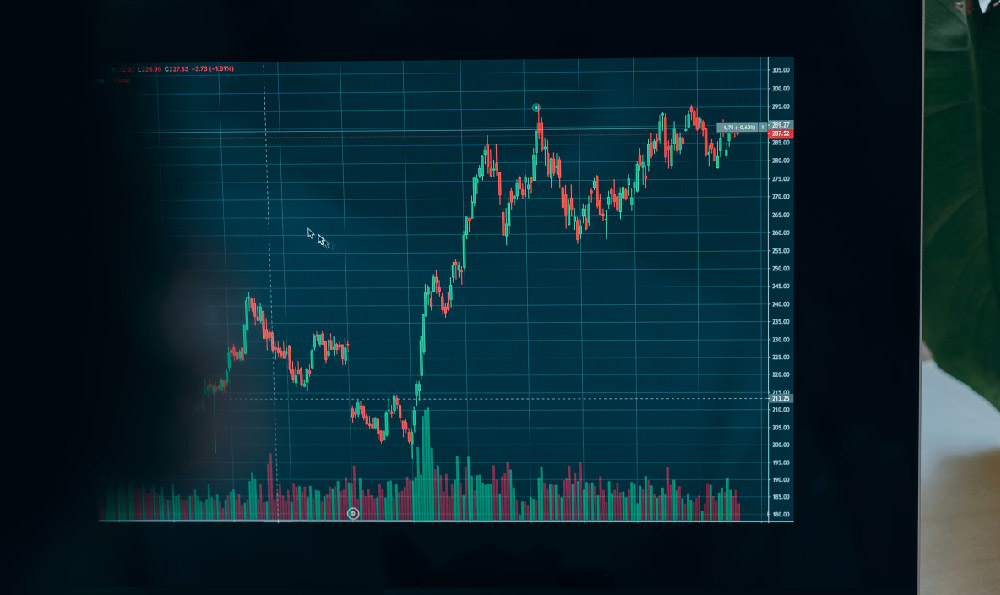Investing in digital assets, such as cryptocurrencies like Bitcoin and Ethereum, has become increasingly popular. The allure of high returns, coupled with the decentralized nature of these assets, attracts investors from all walks of life. However, navigating the world of digital assets requires a strategic approach, a deep understanding of market dynamics, and a keen awareness of the inherent risks. Whether it's "worth it" depends entirely on individual circumstances, risk tolerance, and investment goals.
A fundamental strategy for profiting from digital assets involves diversification. Don't put all your eggs in one basket. Spreading your investments across various cryptocurrencies and even incorporating other asset classes into your portfolio mitigates risk. Consider exploring established cryptocurrencies with strong market capitalization, emerging altcoins with promising technology, and even stablecoins pegged to fiat currencies to provide stability. Analyzing the whitepapers of different projects, understanding their underlying technology, and assessing the teams behind them are crucial steps in informed decision-making. It's also beneficial to diversify your investment strategies. For instance, allocate a portion of your portfolio to long-term holding (HODLing) of fundamentally sound cryptocurrencies, while dedicating another portion to short-term trading strategies based on technical analysis.
Technical analysis plays a vital role in identifying potential entry and exit points in the market. Studying chart patterns, such as head and shoulders, double tops and bottoms, and triangles, can provide valuable insights into price movements. Key indicators like Moving Averages, Relative Strength Index (RSI), and MACD (Moving Average Convergence Divergence) help gauge market momentum and identify overbought or oversold conditions. Utilizing these tools effectively requires practice and a disciplined approach to avoid impulsive decisions based on short-term market fluctuations. Learning to identify support and resistance levels, and understanding the significance of trading volume, are also essential for making informed trading decisions.

Beyond technical analysis, understanding fundamental analysis is equally important. This involves evaluating the intrinsic value of a cryptocurrency based on its technology, adoption rate, use cases, and the overall health of its ecosystem. For example, understanding the scalability solutions being implemented by Ethereum, the growth of decentralized finance (DeFi) applications, and the increasing adoption of NFTs (Non-Fungible Tokens) within the Ethereum network can provide a strong indication of its long-term potential. Similarly, assessing the regulatory landscape surrounding cryptocurrencies is crucial, as government regulations can significantly impact market sentiment and price volatility. Keeping abreast of news and developments in the crypto space through reputable sources and industry experts is essential for staying informed and making well-informed investment decisions.
Effective risk management is paramount in the volatile world of digital assets. Set clear investment goals and risk tolerance levels before investing any capital. Determine the maximum percentage of your portfolio you are willing to allocate to digital assets and the maximum loss you are prepared to incur. Implement stop-loss orders to automatically sell your assets if the price drops below a certain level, thereby limiting potential losses. Avoid investing more than you can afford to lose, and never borrow money to invest in cryptocurrencies. The potential for high returns comes with an equally high risk of losing your entire investment. Regularly review your portfolio, rebalance your asset allocation, and adjust your risk management strategies based on market conditions and your evolving financial goals.
Avoiding investment traps is crucial for protecting your capital. Be wary of get-rich-quick schemes, Ponzi schemes disguised as cryptocurrency projects, and pump-and-dump schemes orchestrated by social media influencers. Conduct thorough due diligence before investing in any project, and be skeptical of unrealistic promises of guaranteed returns. Scrutinize the team behind the project, the technology, the use case, and the community support. A legitimate project will have a transparent team, a well-documented whitepaper, a viable use case, and a strong community following. Beware of phishing scams and fake websites designed to steal your private keys and cryptocurrency holdings. Always use strong, unique passwords for your cryptocurrency accounts and enable two-factor authentication (2FA) for added security. Store your cryptocurrencies in a secure wallet, preferably a hardware wallet, which provides the highest level of protection against hacking and theft. Never share your private keys with anyone, and be cautious of clicking on suspicious links or downloading files from unknown sources.
Furthermore, understanding the tax implications of cryptocurrency investments is essential for complying with tax regulations and avoiding penalties. Different countries have different rules regarding the taxation of cryptocurrencies, so it's important to consult with a tax professional to understand your obligations and ensure compliance. Keep accurate records of all your cryptocurrency transactions, including purchase prices, sale prices, and any expenses incurred. Reporting your cryptocurrency gains and losses accurately on your tax return is crucial for avoiding legal issues.
The decision of whether investing in digital assets is "worth it" depends on individual circumstances. If you are a risk-averse investor seeking stable returns, digital assets may not be suitable for you. However, if you are willing to accept a higher level of risk in exchange for the potential for higher returns, digital assets can be a valuable addition to your portfolio. Carefully consider your investment goals, risk tolerance, and financial situation before investing in any digital asset. Educate yourself about the technology, the market dynamics, and the risks involved. Develop a well-defined investment strategy, implement effective risk management techniques, and stay informed about the latest developments in the crypto space. With a strategic approach and a disciplined mindset, you can potentially profit from digital assets while mitigating the inherent risks.












